Paclitax 100mg Paclitaxel Injection
$75.00 – $650.00Price range: $75.00 through $650.00
Paclitax 100 is used to treat various types of cancer, including breast, lung, and ovarian cancers. It contains Paclitaxel, which works by stopping the growth and spread of cancer cells.
| Pack Size | Price | Price / Unit | Quantity | |
|---|---|---|---|---|
| 1 Injection | $75.00 | $75.00/ unit | ||
| 5 Injections | $350.00 | $70.00/ unit | ||
| 10 Injections | $650.00 | $65.00/ unit |
Looking for bulk / B2B pricing? | Send Inquiry |

| SKU | 11094 |
| Manufacturer | Cipla Limited |
| Categories | Anti Cancer |
| Delivery Time | 10 - 14 Working Days |
| Strength | 100mg |
Introduction to Paclitax 100 Mg Injection
Paclitax 100mg injection is a chemotherapy medication used in the treatment of various cancers. The active ingredient, Paclitaxel, belongs to a class of drugs known as taxanes, which work by interfering with the normal function of microtubules during cell division. By stabilizing these structures, Paclitaxel prevents cancer cells from completing their division and growth, ultimately leading to cell death.
Paclitax 100mg is commonly used in the treatment of breast cancer, ovarian cancer, lung cancer, and other solid tumors. It is often administered intravenously in a clinical setting, typically as part of a combination therapy regimen with other anticancer drugs to enhance effectiveness. The dosing schedule may vary depending on the type of cancer being treated, the patient’s overall health, and their response to the medication.
Uses of Paclitax 100 Mg Injection
Paclitax 100 mg Injection contains Paclitaxel, a chemotherapy medication used to treat various types of cancer. Below are its primary uses:
- Ovarian Cancer
- Breast Cancer
- Non-Small Cell Lung Cancer
- Kaposi’s Sarcoma
- Lung Cancer
- Pancreatic Cancer
- Kaposi Sarcoma
- Stomach Cancer
- Head and Neck Cancer
- Other Cancers
How Does Paclitax 100Mg Injection Works?
Paclitax 100 mg Injection has an active ingredient; Paclitaxel is an Anti-cancer medicine which works by interfering with the microtubule structures which help the cancer cells to divide and multiply. Paclitaxel is a Taxoid antineoplastic agent used as first-line and succeeding therapy for the treatment of advanced carcinoma of the ovary, & other various cancers including breast cancer.
Paclitaxel is a new antimicrotubular agent which promotes the assembly of microtubules from tubulin dimers & stabilizes microtubules by preventing depolymerization.
This stability results in the inhibition of the normal dynamic restructuring of the microtubule network which is essential for vital interphase & mitotic cellular functions. Paclitaxel also stimulates abnormal arrays or “bundles” of microtubules throughout the cell cycle & multiple asters of microtubules during mitosis. This slows the growth of cancer cells & eventually kills them.
Side Effects of Paclitax 100 Mg Injection
Common Side Effects
- Nausea and Vomiting
- Hair Loss (Alopecia)
- Peripheral Neuropathy
- Fatigue and Weakness
- Low Blood Cell Counts
- Diarrhea or Constipation
- Mouth Sores (Stomatitis)
- Skin Rash and Nail Changes
- Muscle and Joint Pain
- Loss of Appetite
Serious Side Effects
- Severe Neutropenia
- Severe Allergic Reactions
- Peripheral Neuropathy
- Bradycardia (Slow Heartbeat)
- Liver Toxicity
- Severe Gastrointestinal Toxicity
- Bleeding or Bruising
- Shortness of Breath
Dosage of Paclitax 100 Mg Injection
Paclitax 100 mg Injection contains an active ingredient, Paclitaxel, which is used in the treatment of breast cancer, non-small cell lung cancer and pancreatic cancer. This medicine is available in various strengths and substitutes & must be given on doctor’s prescription only. You should consult your doctor for dosage and time because age and severity of the disease differ from person to person and it can only be judged by your doctor.
Adults are advised to take Paclitax 100 mg Injection at a fixed time with or without food as instructed by your Doctor. You must take this medicine regularly on time for better results.
Other Dosages of Paclitax
How To Manage Side Effects?
- Stay Hydrated
- Eat Small, Frequent Meals
- Use Anti-Nausea Medications
- Rest and Pace Yourself
- Practice Good Hygiene
- Protect Hands/Feet
- Report Fever or Infections
- Moisturize Skin
- Monitor Heart Health
Warning And Precaution
1. Allergic Reactions:
- Premedication (antihistamines and steroids) is required to prevent severe allergic reactions.
2. Blood Cell Counts:
- Regular blood tests are needed to monitor white blood cells, red blood cells, and platelets.
3. Infection Risk:
- Avoid contact with sick people due to weakened immune system.
4. Neuropathy Risk:
- Monitor for numbness or tingling in hands/feet and report to your doctor.
5. Heart Issues:
- Be cautious if you have a history of heart problems; monitor for irregular heartbeat or chest pain.
6. Liver Function:
- Regular liver function tests are required as the drug can cause liver toxicity.
7. Pregnancy and Breastfeeding:
- Not safe during pregnancy or while breastfeeding. Use effective contraception.
8. Driving and Operating Machinery:
- May cause dizziness or fatigue; avoid driving if affected.
9. Skin Reactions:
- Watch for severe skin rashes or peeling and inform your doctor immediately.
10. Bleeding Risk:
- Be cautious if you bruise easily or have prolonged bleeding due to low platelets.
Safety Advice
- Stay away from crowds and sick people to reduce infection risk.
- Avoid pregnancy during treatment and for a few months after.
- Avoid driving or operating machinery if you feel dizzy or weak.
- Inform your doctor immediately if you notice swelling, rash, or breathing issues.
- Get routine blood tests to monitor your health and adjust doses if needed.
FAQs – Frequently Asked Questions
1. Is Paclitax 100mg Injection a cure for cancer?
Paclitax 100mg Injection helps control and slow cancer progression but is not always a cure; effectiveness varies depending on cancer type and stage.
2. How is Paclitax 100mg Injection administered?
Paclitax 100mg Injection is given as an intravenous (IV) infusion by a healthcare professional in a hospital or clinical setting.
3. Does Paclitax 100mg Injection affect immunity?
Yes, Paclitax 100mg Injection can lower white blood cell counts, increasing the risk of infections.
4. How long does treatment with Paclitax 100mg Injection last?
The treatment duration depends on the type of cancer, treatment plan, and patient response, as decided by the oncologist.
| Pack Size | 1 Injection, 10 Injections, 5 Injections |
|---|---|
| Price/Unit | $65/unit, $70/unit, $75/unit |
Be the first to review “Paclitax 100mg Paclitaxel Injection” Cancel reply
Related Products
Anti Cancer
Anti Cancer
Anti Cancer
Anti Cancer
Anti Cancer

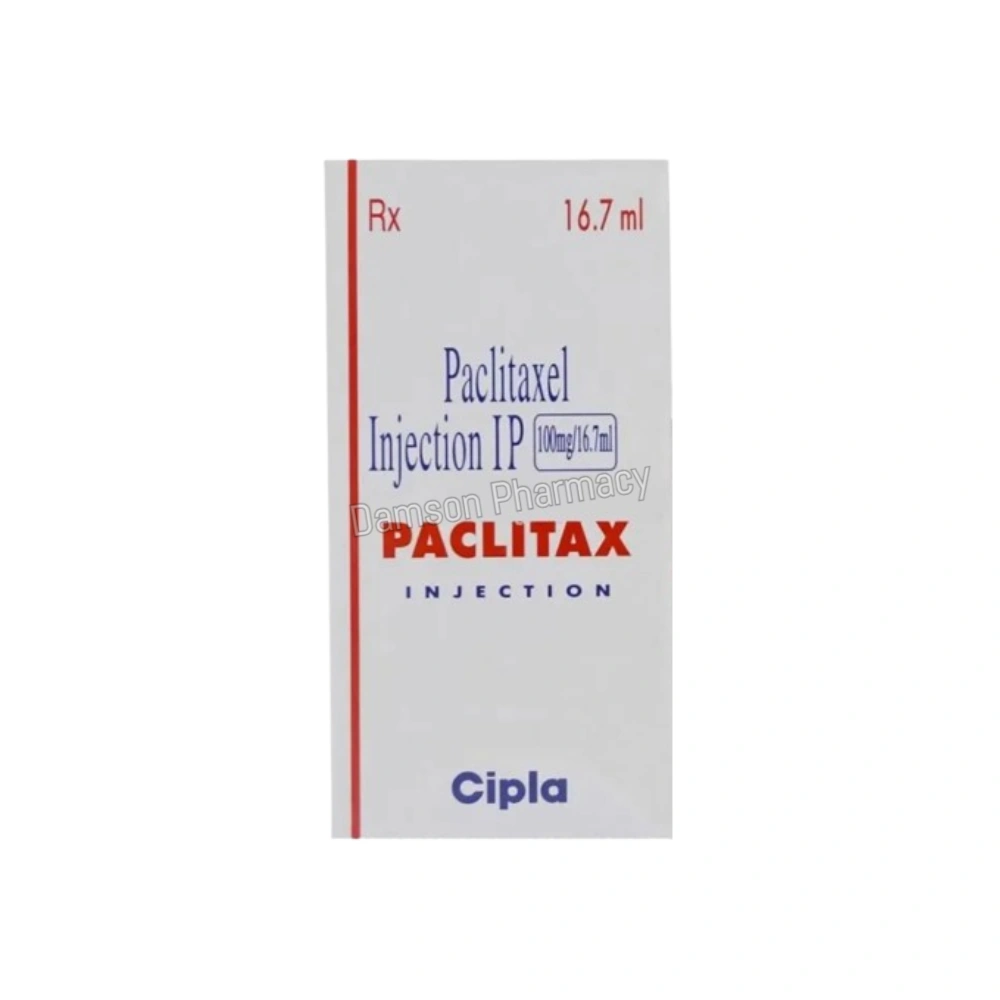
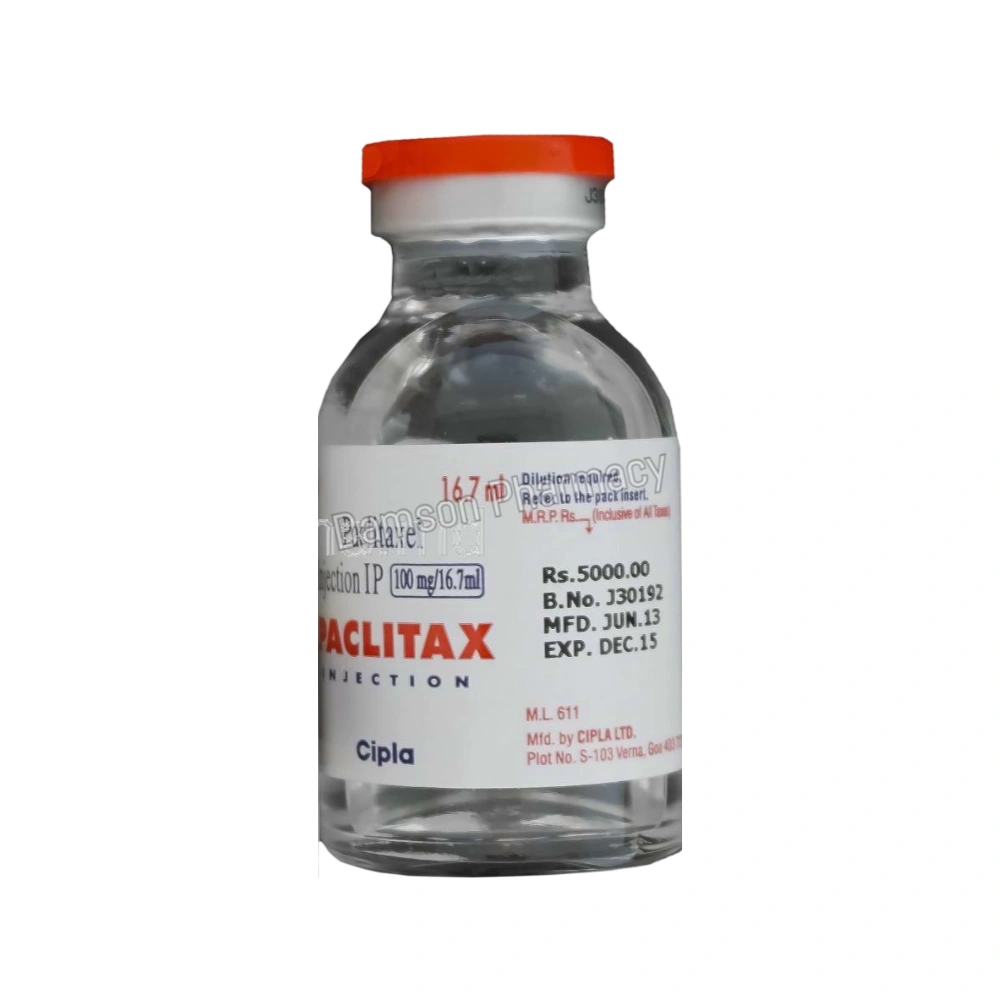

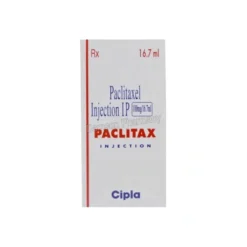
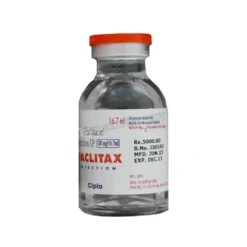


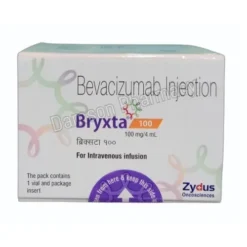

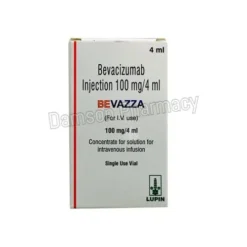
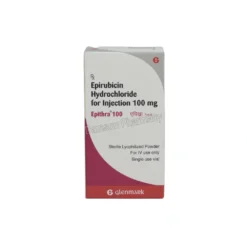
Reviews
There are no reviews yet.